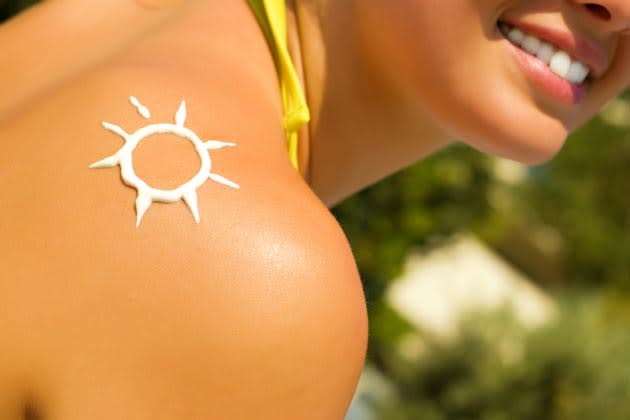Sun Protection Myths

By Maui V. Reyes for Yahoo! Southeast Asia
Summer usually spells more time outdoors—which means, more sun exposure. And if you're like most people, this is also the time of the year when you buy one bottle of sunscreen to pack for that once-a-year beach trip or out-of-town getaway.
While it's great you're thinking of sun protection this summer, it's a bummer that you still believe in the myth that sunscreen is only needed at this time of the year. And chances are, you're not as clued in on sun protection as you think.
Did you know that, contrary to popular belief, the sun doesn't get rid of acne, or that layering on SPFs from different sun blocks won't give you extra protection? It may not seem like a big deal, but protecting yourself from the sun's harmful ultraviolet rays is super important. More than 3.5 million cases of skin cancer are diagnosed in the US alone every year.
Read on as we clear up some sun protection myths so you can truly have a fun—and safe—summer!
Myth 1: If you have dark skin, you don't need sunblock.
Having dark skin means that we have more melanin, a substance in the skin that gives us color and protection from darkening. But just because our fair-skinned friends fry faster than we do doesn't mean we're protected from UVA (ultraviolet aging) and UVB (ultraviolet burning) rays!
"There are certain skin diseases, like photoaging, actinic keratoses, and skin cancers like cell carcinoma, which you can get from chronic or prolonged sun exposure…and no ethnic group is safe from them," says dermatologist Dr. AJ Ramos-Braga. Intermittent sun exposure can also cause melanoma, the most common type of skin cancer.
Myth 2: My acne will clear up if I stay under the sun for long periods of time.
Sun exposure can sometimes dry up excess oil on your face, and getting a tan might help hide the discoloration that acne causes. But the risks of going under the sun unprotected outweigh these so-called acne-clearing benefits (which you can get from a tube of zit cream).
UV rays create free radicals, which can cause premature wrinkles. Plus, it's not a good idea to go under the sun if you're already treating your acne with meds. "Acne medications are actually photosensitive, so you shouldn't expose yourself to the sun," says Dr. Ramos-Braga.
Myth 3: If I use a sunscreen with the highest SPF, I'll be protected all day.
SPF, which stands for "Sun Protection Factor", is formulated by calculating how well it protects your skin against UVB and UVA radiation. "Usually, the testing for SPF is based on 2 mg of sunscreen applied per cm2, which is equivalent to 30 ml applied all over the body," says Dr. Ramos-Braga. "Meaning, if we don't apply enough to cover 2 mg per cm2, we're not getting all the benefits of the sunscreen."
Getting the highest SPF in the drug store is a good idea (SPF 50 gives you 98% protection, compared to SPF 15 which gives you 93% protection), but you'll still have to reapply every two to three hours. You might have to reapply more frequently if you plan on getting into the water—just because it says 'water resistant' doesn't mean it lasts all day!
Myth 4: I can increase my protection from the sun by 'layering' on different SPFs.
You'll only be wasting your sunscreen. "'Layering' on SPF lotions does not have an additive effect," points out Dr. Ramos-Braga. "You usually get the effect only of the higher SPF that you applied."
Myth 5: Tanning beds are a safer alternative to baking under the sun.
Negative. Tanning beds emit 98% of UVA rays, which penetrate the skin and damage collagen and elastic tissue. "There are studies that show that tanning beds are more likely to cause skin cancers like melanoma, basal cell carcinoma, or squamous cell carcinoma," says Dr. Ramos-Braga.
Myth 6: It's safe to use the bottle of sunscreen I bought a year ago.
First off, if you weren't able to finish off a bottle in a year, then you're not applying enough to protect yourself! You should be applying a shot glass's worth of sunscreen (about an ounce) on exposed parts of the body. That being said, check the expiration date on the bottle before slathering it on. "The FDA requires a sunscreen to last for at least three years," says Dr. Ramos-Braga. "If no expiration date is indicated, just check the consistency, smell, and color of the sunscreen. Any change will indicate that it may not be safe to use anymore."

